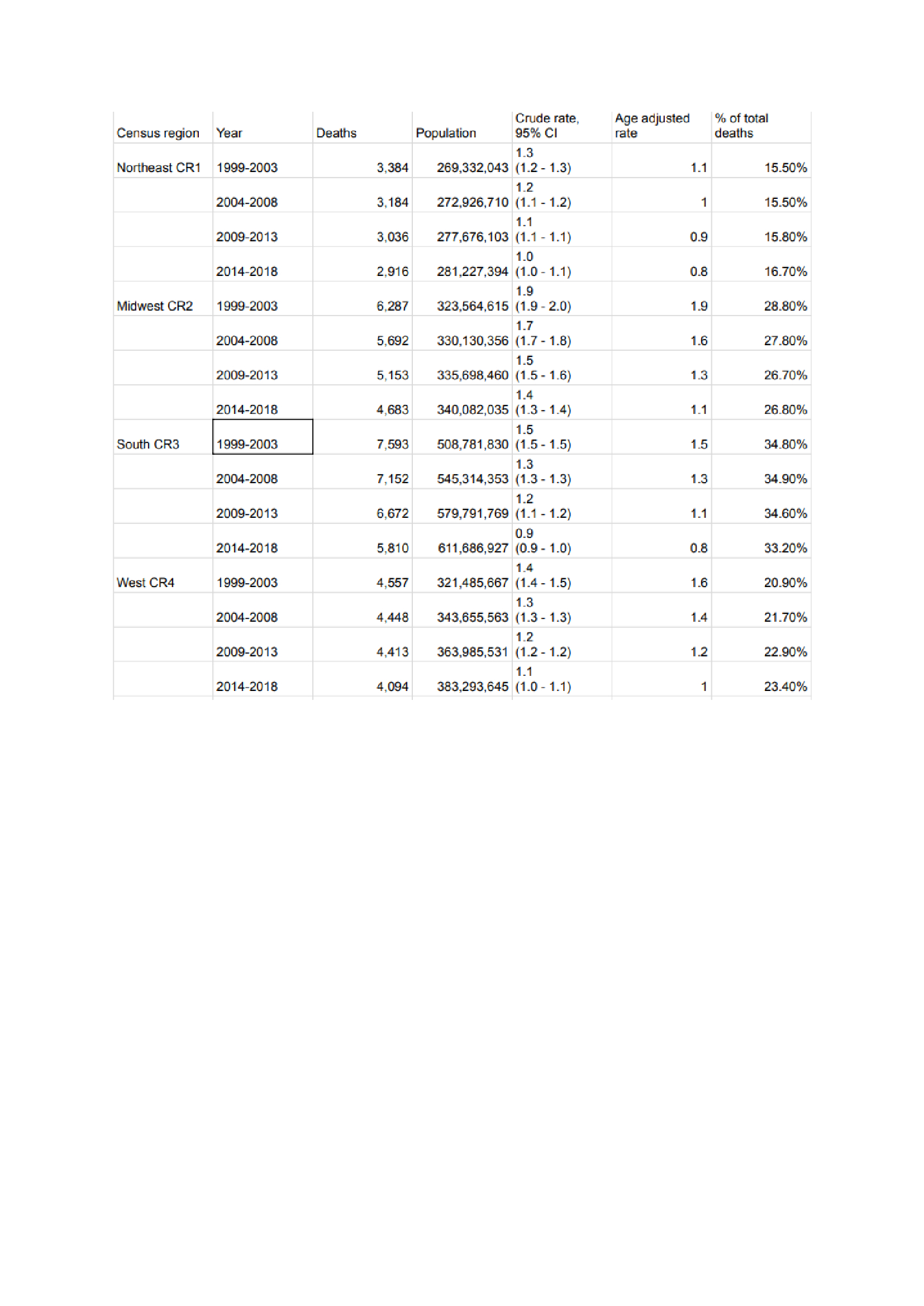Session Information
Date: Monday, November 8, 2021
Title: Epidemiology & Public Health Poster III: Other Rheumatic & Musculoskeletal Diseases (1022–1060)
Session Type: Poster Session C
Session Time: 8:30AM-10:30AM
Background/Purpose: Temporal trends of arthropathies-related mortality in the United States are not well studied. Arthropathies include Infectious arthropathies, Inflammatory poly-arthropathies, osteoarthritis, and other joint disorders. It is reasonable to speculate that with the advancement in the field of rheumatology, availability of new immune therapies, and persistent guideline-based high-quality treatment, arthropathies-related mortality rates would have trended down over the last two decades. We wanted to investigate the mortality rates and temporal trends of arthropathies related mortality in the United States using nationwide data.
Methods: In this retrospective study death certificate data were retrieved from the Center for Disease Control and Prevention’s Wide-Ranging Online Data for Epidemiologic Research (WONDER) database for 1999-2018. WONDER database is publicly available de-identified data collected by CDC that reports the underlying cause of death across the United States. Mortality, for arthropathies (M00-M25) as an underlying cause of death, was queried. This duration was further stratified into five-year periods from 1999-2018. Age-adjusted mortality rate (AAMR) per 100,000 population was calculated with 95% CI for the four U.S. census regions (CR1 Northeast, CR2 Midwest, CR3 South, and CR4 West).
Results: From 1999-2018 overall arthropathies-related age-adjusted mortality rate (AAMR) declined by 43.75%. Arthropathies-related AAMR for Northeast (CR-1) declined by 18.18 %, for Midwest (CR-2) declined by 42.10%, for South (CR-3) declined by 46.66%; for West (CR-4) declined by 37.5%. Regional and overall crude rates with 95% CI, are reported in Table-1; and Table 2. Temporal trends are illustrated in Figure-1.
Conclusion: Our study shows a downward trajectory of arthropathies-related mortality in all U.S census regions. Regional variations warrant further discovery. This data reinforces the continuation of high-quality care and evidence-based practices that may have played a role in declining AAMR for arthropathies-related mortality in the U.S. Major limitation of our study is the inherent weakness of the WONDER database and the inability to report AAMR for different MKS related disorders (SLE, rheumatoid arthritis).
 Table_1 shows crude and age-adjusted mortality rate with 95% CI, from 1999_2018 for arthropathies as the underlying cause of death in four U.S census regions
Table_1 shows crude and age-adjusted mortality rate with 95% CI, from 1999_2018 for arthropathies as the underlying cause of death in four U.S census regions
 Table_2 shows overall AAMR for arthropathies as the underlying cause of death in the U.S from 1999_2008
Table_2 shows overall AAMR for arthropathies as the underlying cause of death in the U.S from 1999_2008
 Figure_1 illustrates the age-adjusted mortality rate per 100,000 population due to arthropathies (M00-M25) in four U.S census regions from 1999_2018
Figure_1 illustrates the age-adjusted mortality rate per 100,000 population due to arthropathies (M00-M25) in four U.S census regions from 1999_2018
To cite this abstract in AMA style:
Akbar H, Mughal W, Mirza H, Kaur I, Jagdey H, Mughal M. Temporal Trends of Arthropathies Related Mortality in the United States and Its Regional Variations from 1999-2018 [abstract]. Arthritis Rheumatol. 2021; 73 (suppl 9). https://acrabstracts.org/abstract/temporal-trends-of-arthropathies-related-mortality-in-the-united-states-and-its-regional-variations-from-1999-2018/. Accessed .« Back to ACR Convergence 2021
ACR Meeting Abstracts - https://acrabstracts.org/abstract/temporal-trends-of-arthropathies-related-mortality-in-the-united-states-and-its-regional-variations-from-1999-2018/
